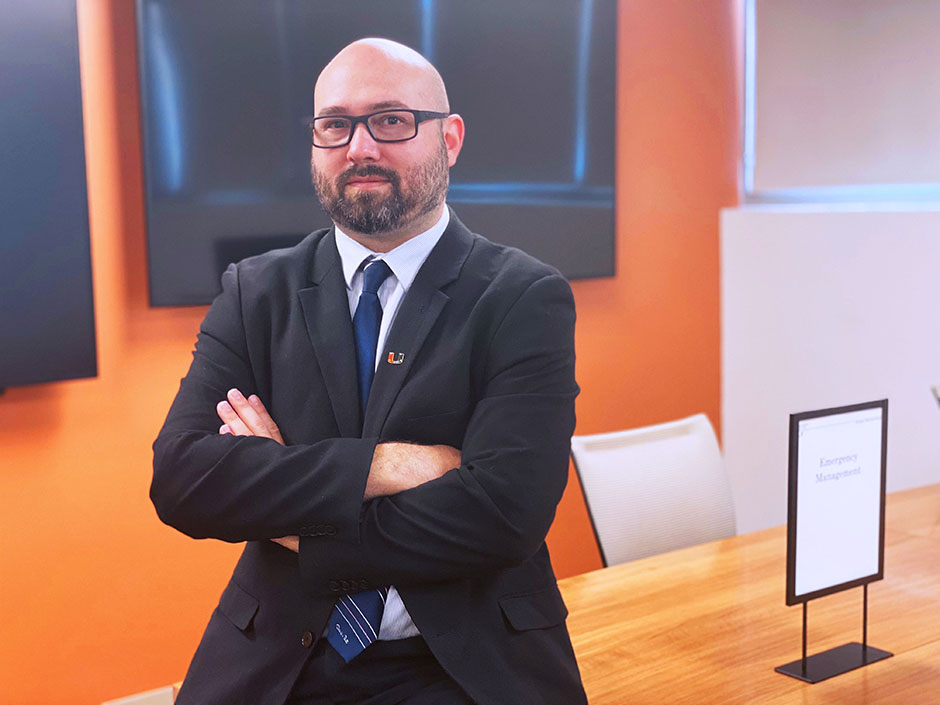Our role was mainly about gathering reliable information and planning ahead. Our OEM team, including my co-worker, Anna Simko, and our Director, Matt Shpiner, began discussing and drafting a document that would ultimately become our University Coronavirus Response Plan. As the situation continued to develop, the plan provided a roadmap for us and for University leadership to be coordinated as to what actions were being implemented and when.
2. How has COVID-19 changed the way OEM prepares for and responds to a threat like this?
OEM’s function isn’t to respond directly to the emergencies themselves, but about responding to the urgent circumstances and complex issues such emergencies create. With COVID-19, the University was presented with a scenario that left us little choice but to take action in order to protect the community for an unknown amount of time. Our challenge, then, was to help identify ways to safely continue our core mission while most of our faculty, staff, and students were away from campus. This is a different goal than in many other emergencies, where the central aim is to facilitate recovery and a return to normal operations as soon as possible.
3. At this point in your career, what have you learned about disaster preparedness and protecting UM staff, faculty, and students?
Having worked for UMPD for a decade before moving over to OEM (and being a student here prior), I have had the opportunity of seeing campus safety and preparedness from various perspectives. One thing that’s become increasingly clear to me over the course of my career is that the feeling of safety and security is absolutely integral to the learning process. While that notion isn’t likely to surprise most, I do think there are those within University settings across the globe who haven’t associated emergency preparedness as contributing significantly to that overall feeling of general safety. I’m quite proud to work with a University that does.
4. How has OEM handled the distribution of accurate news and info to the UM community in relation to COVID-19?
It’s hard to overstate just how harmful inaccurate information can be to the response and recovery processes of any emergency. During this global pandemic, it has been an even greater challenge since so many want to be involved in communicating news around them. At UM, the Emergency Management team works very closely with our UM Communications team, leadership, and other key partners to keep incorrect information from being distributed throughout the campus community and online. Staying informed is important. Using verified sources is even more important!
5. What has helped you cope during these stressful and uncertain times?
What helps me most is knowing that I have done what I could reasonably do to prepare well ahead. For me, this meant having a supply of the essentials on hand: food, cleaning supplies, medicines, etc., and communicating with my family early and often about how we could best contribute to staying safe. In such times, taking care of the basics and communicating early cuts out a lot of unnecessary stress and uncertainty later on. I would add that we owe it to ourselves to find the time to periodically escape the constant onslaught of news and updates, and to allow ourselves the time to reboot, recharge, and to be ready to work toward rebuilding and recovering as a campus community as soon as we are able to safely do so.

